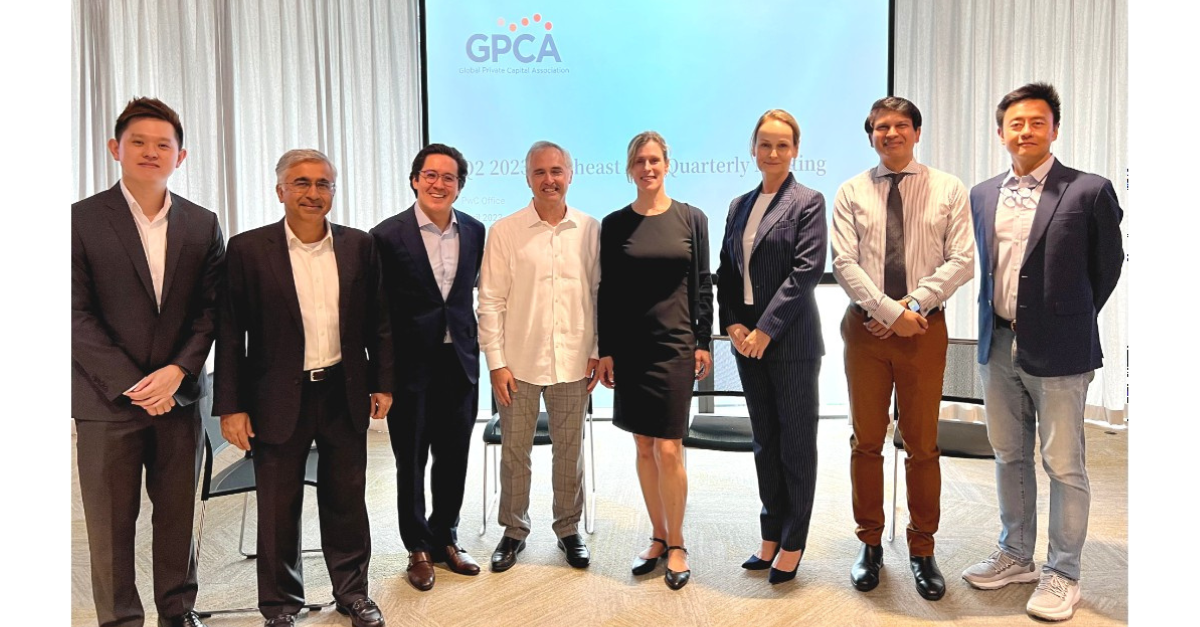GPCA Southeast Asia Members Program
27 April 2023
PwC Office
April 27 | 4:00 pm

GPCA hosted a member’s discussion on private capital investing in an uncertain environment for the Singapore Quarterly Members Meeting on 27 April, with 60 attendees across GPCA’s membership.
At a nervous point in the cycle, with a “wall of worry” from the banking system to geopolitics, and the impacts of climate change, private capital has many challenges along with opportunities to raise and deploy funds while managing their existing portfolio.
Cate Ambrose (CEO, GPCA), Taimur Baig (Managing Director & Chief Economist, DBS Bank) and Claudia Zeisberger (Professor of Entrepreneurship & Family Enterprise, INSEAD) led a discussion addressing how investors are thinking about navigating new realities, including higher interest rates, decreased confidence in the banking sector in the US and Europe, scarcity of capital, geopolitical tensions with China, and increasing ESG expectations in Southeast Asia, as well as an emerging focus on “Responsible AI”.
Key takeaways include:
- Regulators are worried about the banking system and similarly concerned about the non-banking financial sector. Markets are dependent on government liquidity, and government liquidity is tightening. All of this needs to be taken into consideration for those fundraising, as well as recognizing that the situation in the US contrasts with what is happening outside of the US, where the global situation remains decent.
- The recently concluded IMF meetings were characterized by a somewhat cautious view of the post-pandemic recovery. Emerging market economies, led by China, were expected to grow by around 4% – broadly unchanged from 2022. The current narrative is that as monetary policies tighten, developing economies could become negatively impacted.
- China’s positioning is that it has been the largest country that provided debt relief over the last two years, noting that its model of debt relief is very different from the Western conventional model.
- While markets in SE Asia remain attractive, investors in countries including Vietnam must also take into account that it faces a credit crunch as well as political changes.
- On climate change, PE has a significant and distinct competitive advantage to tackle such issues compared to publicly held companies. The risk of greenwashing is very real, and hence it is important for firms to communicate their strategies well. For VCs, ESG also covers responsible AI and the implication of AI technology. While guardrails were not set up during the initial social media wave a decade ago, one cannot expect the same to occur now, and regulations could impact the AI sector in a more significant way.
Thank you to everyone who attended the meeting. For questions, please contact Jia Xin Ong at jxong@gpcapital.org.